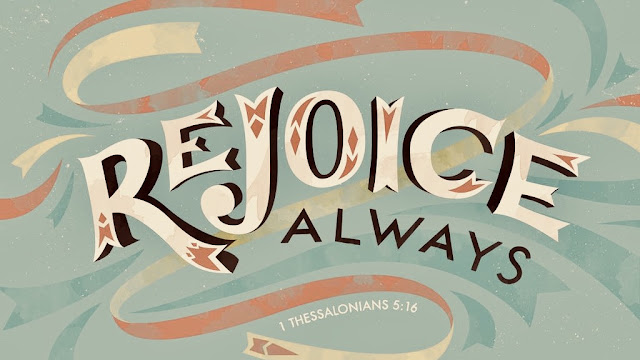The Holy Family of Jesus, Mary, and Joseph
I was Christmas shopping a few years ago when I came across
one of those, you might say, “inspirational” signs in a department store: “Our
family puts the FUN in dysFUNctional.”
I was rather tempted to buy it…but walked away. When I was back in the same store a
week later, they were all sold out.
I guess at least a few families have the same experience!
At Christmas, many of us spend a lot of time with family—with
all the ups and downs that can entail.
And how very appropriate that is during this season when we focus so
much of our attention on the manger, and there see the Holy Family of Jesus,
Mary, and Joseph. Over the
holidays, families eat together and exchange gifts, all gathered together in
one place. But does sharing a
meal, giving presents, or being under the same roof somehow make a group of distinct
individuals into a family? Of
course not.
The fact of the matter is that our Christmas festivities get
their power and meaning from what happens the other 364 days of the year: from
being there for one another; from looking after one another; from asking about
each other; from supporting each other in difficult times; from celebrating
with each other in happy times. It’s
only because we already care about one another, because we love one another,
that it makes any sense at all for us to come together in the first place.
And the very same thing is true of our Church family.
The Church is a family. We speak of our Holy Mother,
the Church. We refer to each other
as brothers and sisters in Christ. You
even call me Father Joe. That familiar language is intended to
be so much more than a homey metaphor.
But it’s not enough that we happen to spend an hour in God’s house at
the same time every Sunday to make those words a reality.
Although showing up is pretty essential, to be Catholic
requires much more of us than regularly getting to Mass. In fact, it’s what we do between Masses that helps to form us and
keep us together as a true family of faith. We have to get to know one another. We have to care for each other—to
be there for each other in good times and bad. We have to love each other.
And this is where the dysfunction comes into our Church
family. Experience shows time and
again that when Protestants become Catholic, it’s usually either because of
doctrine or the sacraments: the Church’s teachings are so consistent, so
comprehensive, so compelling, that they want to be a part of it, or they
recognize the real presence of Jesus Christ in the Eucharist and can’t stay
away. But we also see that when Catholics leave and become
Protestant, it’s generally because they’re looking for a stronger experience of
fellowship: their parish didn’t have an honest sense of community; they didn’t
feel at home there; it didn’t feel like a real family.
Sure, we’re here right now to keep an obligation—but even
more, we’re here to strengthen relationships. That’s why taking a moment to greet one another before Mass
begins—as we did this morning—is not a silly little exercise. It’s also why racing out of Mass or
heading home early is like leaving the dinner table without first being excused. But there’s no magic program, no foolproof
plan that can fix this dysfunction.
No one else can do it for you.
As in any family, being a family
of faith is something we have to work at—each and every one of us. Neglect it, take it for granted, and
before long, it won’t be there for you any more.
I’ve been doing some reading recently on the life and
ministry of priests. A number of
things I’ve read have pointed out that priests need to have an experience of
community amongst themselves. We
were never meant to be “lone rangers.”
That’s important for our personal wellbeing—to have companions we know
we can depend on. But it’s also
important for our pastoral ministry: if priests are going to be able to lead
and form a parish community, then
they need to have some first hand experience of community from the inside. Community begets community; family
begets family.
If that’s the case for the priest’s place in the parish, I’d
say it’s much the same for the parish’s place in the wider world. In our day and age, the family is
threatened. Many would say that’s because we’ve gone and tampered with the very
definition of what it means to be a family. While that may be true, families have always come in a wide
array of shapes and sizes. (With
apologies to my own parents and siblings: Have any of you ever met a “normal”
family?) For me, any concern about
families these days being non-traditional is eclipsed by the fear that families
may actually soon disappear altogether.
We don’t have any time to be a family any more. Parents today are super busy with work
(sometimes earning a salary just to pay someone else to look after their
children). And kids are super busy
with the demands of school, sports, and countless other activities. For many modern families, the only time
they have together is in the car racing from one thing to the next. Families are busy with many good
things—it’s just they’re busy with too
many good things.
And we’ve also allowed ourselves to accept some pretty cheap
substitutes for family life. Hours
and hours every day are spent tending to our “social networks” and “online
communities.” Such connections can
seem so much safer, so much more efficient, so much more convenient, than
keeping in touch with our loved ones the old-fashioned way. But you know these aren’t real relationships—only
imitations—when you see family members, young and old, right next to each
other…but never saying a word, their attention entirely given to tiny glowing
screens. Technology’s a helpful
tool, but it’s also a huge temptation.
That’s why I worry that the family is an endangered species. And that’s why the world we live in
desperately needs parishes that are real
families—that are authentic communities which allow people to experience
human connection the way God intended it.
But “we can’t give what we ain’t got.” And so there’s a great urgency for us as a Church
family—specifically, as a parish family here at St. André’s—to get it right when
it comes to loving one another as true brothers and sisters in Christ.
The sacred scriptures this Sunday remind us that the Lord
promised Abraham many descendants.
But the promise was for more than a long bloodline; it was for an
immense family of faith. When God
tells Abraham to go out and count the stars (for that is how numerous his
children will be), we tend to overlook a rather crucial detail of the story: it
was the middle of the day! It’s
not that God was asking Abraham to do something impossible—stargazing at noon;
it’s that God was asking Abraham to trust him completely.
And Abraham would be called to do that very thing again and
again: when leaving his homeland; when awaiting a son with Sarah in their old
age; when put to the test as he was asked to offer that same son in sacrifice. That complete faith in God is what
links all the spiritual children of Abraham. It was that faith which united and guided Jesus, Mary, and
Joseph as they journeyed to Bethlehem, then to Jerusalem, then to Egypt, and
then to Nazareth. It’s that faith
which must bind us together here in Malone as one holy family. We, the Church, are the fulfillment of
God’s promise to Abraham.
As a parish family, we are called by God to give witness to genuine
human connection. But deep and
lasting human connection is only possible because we are really and truly
connected to the Lord. Since the
Word became flesh, since God became man, the Christmas mystery is at the heart
of what it means to be a family. As
he appears in every Nativity scene, it’s only when we keep Jesus at the center
that we can be who we were meant to be.
You don’t get to pick your family, of course. It’s a gift you receive—and it’s one
you can’t return or exchange. So
we might as well make the most of it!
Yes, our family of faith will always be dysfunctional. And that’s because you and I are
members of it: we’re sinners among so many others. But that doesn’t mean we can’t find the fun in our
dysfunction. And it certainly doesn't
excuse us from answering the call to be holy.
Like the Holy Family of Jesus, Mary, and Joseph, we now
present ourselves before the Lord here in this temple. We have come together again as God’s
family in God’s house. But let’s be
sure we’re thinking and speaking and acting—and, above all, that we’re loving one
another—as a true family of faith, not only on Sundays and at Christmas, but
every day and all throughout the year.










